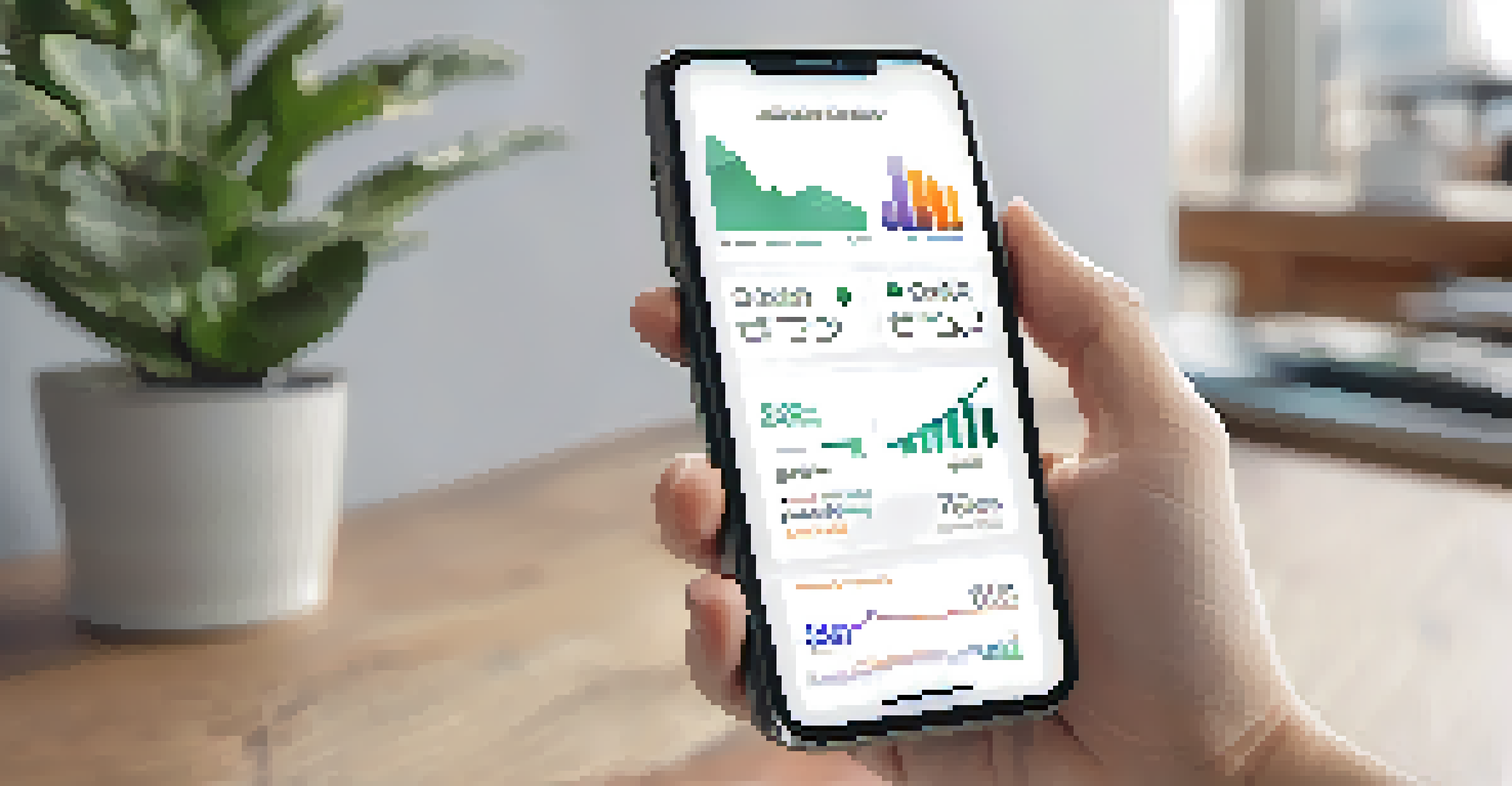How to Measure the Success of Your Professional Development

Understand Your Goals and Objectives Clearly
Before you can measure success, you need to know what you're aiming for. Are you looking to enhance specific skills, gain a promotion, or maybe shift careers? Clearly defined goals provide a roadmap, helping you stay focused on what truly matters.
Success is the sum of small efforts, repeated day in and day out.
For instance, if your goal is to improve your public speaking skills, you might want to set specific milestones, like delivering a presentation to a small group. This clarity allows you to track your progress effectively and make adjustments as needed.
Remember, without clear goals, it's like trying to navigate without a map. You'll find yourself lost and unsure of your direction, making it difficult to measure any kind of success.
Collect Feedback from Peers and Mentors
One of the most valuable ways to assess your development is through feedback. Engaging with peers and mentors can provide insights you might overlook. They can help you see your strengths and areas that need improvement.

For example, after giving a presentation, ask a trusted colleague for their thoughts. Their perspective can offer a different angle that you might not have considered, helping you refine your approach and skills.
Define Clear Goals for Success
Having well-defined goals acts as a roadmap, guiding your professional development and making it easier to measure your achievements.
Constructive feedback is essential for growth. Embrace it as a tool that can guide your journey and help you measure how far you've come.
Track Your Progress with Metrics
Metrics can be a powerful way to visualize your growth. Consider keeping a journal or a digital tracker where you log your achievements and setbacks. This can help you see patterns and trends over time.
What gets measured gets managed.
For instance, if you’re working on enhancing your leadership skills, you might track the number of team projects you lead, along with feedback from team members. This quantitative approach provides concrete evidence of your development.
Visualizing your progress can be motivating. It not only highlights how far you’ve come but also clarifies what you still need to work on.
Evaluate Your Skills Against Industry Standards
It's important to compare your skills with industry benchmarks. This can help you understand where you stand among your peers and whether you're on the right track. Researching current trends and required competencies can provide context for your own development.
For example, if you’re in tech, you may want to stay updated on the latest programming languages or certifications that are in demand. This comparison can help you identify any gaps in your skill set and motivate you to bridge them.
Use Feedback for Growth
Collecting feedback from peers and mentors provides valuable insights that can help refine your skills and track your progress.
By aligning your skills with industry standards, you enhance your marketability and ensure you're not just developing for the sake of it, but in a way that adds real value.
Set Regular Check-Ins to Review Your Progress
Scheduling regular check-ins can keep you accountable and focused. Whether it's a monthly review or a quarterly assessment, taking the time to reflect on your journey is crucial. This dedicated time allows you to celebrate your victories and tackle any challenges head-on.
For instance, you might use these sessions to reevaluate your goals based on what you’ve learned. If something isn't working, adjusting your strategy can lead to more effective development.
Consistency in reviewing your progress also reinforces a growth mindset. It encourages you to stay engaged and committed to your professional development.
Celebrate Small Wins Along the Way
Recognition of small achievements can fuel your motivation. Celebrating these wins, no matter how minor they seem, reinforces the positive steps you’re taking towards your larger goals. This can be as simple as acknowledging a successful project completion or mastering a new skill.
For example, if you’ve just completed a challenging online course, take a moment to reward yourself. This could mean treating yourself to a nice dinner or simply sharing your accomplishment with friends or family.
Reflect and Celebrate Progress
Regular reflection and celebrating small wins foster a positive mindset and motivate you to continue your growth journey.
By celebrating small wins, you cultivate a positive mindset that can help sustain your momentum. It reminds you that progress, no matter how small, is still progress.
Adjust Your Strategies Based on What You Learn
Growth is not a straight line; it often requires adjustments along the way. As you gather data about your progress, be open to refining your strategies. This flexibility is key to ensuring that your professional development remains relevant and effective.
For instance, if you find that a certain learning method isn’t resonating with you, it’s okay to pivot. You might discover that a hands-on approach works better for you than theoretical learning.

Embracing change and adapting your approach based on your experiences will not only enhance your development but also make the process more enjoyable.
Reflect on Your Journey to Appreciate Growth
Finally, take time to reflect on your entire professional development journey. This reflection helps you appreciate how much you’ve grown and the challenges you’ve overcome. It’s easy to focus on what’s next, but acknowledging where you started is just as important.
For example, look back at your first experiences in your field. Recognizing the progress you’ve made can inspire you to keep striving for further growth.
Reflection is a powerful tool in measuring success. It encourages gratitude and a deeper understanding of your professional path, ultimately helping you stay motivated for the future.